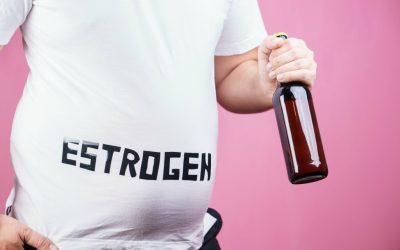The higher your blood alcohol level is, the more you will notice its effects. Alcohol interferes with the brain’s ability to control body temperature. If you drink alcohol on a hot day, your body won’t be able to adjust and control your internal temperature effectively, which increases the risk of heat stroke. This can increase your BAC significantly if you don’t replenish your body’s supply with a few sips of water as you drink. After you take a drink, both the liquid and alcohol contents of the beverage pass through your stomach lining and small intestine into the bloodstream.
Hydrating Foods To Try
To understand the effects of alcohol on dehydration, it’s essential to examine the mechanisms through which alcohol affects hydration levels and impacts various body functions. It’s important to note that the water content in these beverages may vary depending on the specific brand and alcohol content. However, it is evident that alcohol contains less water compared to non-alcoholic beverages, contributing to the potential for dehydration. When drinking alcohol, especially in hot weather, avoiding dehydration is very important.
How to rehydrate after alcohol consumption
According to the CDC, drinking alcohol in moderation is safe for most people. A moderate amount equates to one glass of alcohol or less per day for females and two glasses https://only-paper.ru/forum/40-3027-1 of alcohol or less per day for males. These are substances that promote urine production, or diuresis.
How Alcohol Disrupts Electrolyte Balance

If you’re drinking at altitude (and you’re not used to it!) remember that dehydration is a much bigger concern. Above 5,000 feet elevation, your body can lose fluids almost twice as fast as it can at sea level. But once you introduce alcohol into your system, you urinate more, and the mechanism that normally prevents excessive https://greeceholidaytravel.com/phytolamps-for-seedlings-your-key-to-healthy-and-strong-plants.html urination—anti-diuretic hormone—is inhibited, which can lead to dehydration.
- Electrolyte imbalance can exacerbate dehydration and worsen the unpleasant aftereffects of drinking alcohol, including headaches, low energy, muscle aches, and poor sleep.
- Stoutz says the best way to hydrate is to alternate alcohol and water while you’re drinking.
- Euphoria, relaxation, and other physical and mental changes are the result of alcohol’s impact on your central nervous system.
- Without adequate electrolyte levels, water can’t enter cells and tissues, leaving you at risk of dehydration despite drinking water.
Does Alcohol Dehydrate Your Skin? Your Muscles?
- That will increase your ability to reabsorb water, and leave you more likely to wake up feeling sparkling and ready to face the day — or at least less inclined to put a pillow over your head.
- Excessive urination from drinking alcohol causes your body to lose electrolytes, which are important minerals involved in many bodily functions, including nervous system function (4).
- In severe cases of dehydration, drinking water alone may be insufficient.
- Dr Karl explains why, if you’re drinking booze, what goes in is not equal to what comes out.
- If you are unaware of your body temperature rising, you may become hotter and more dehydrated without realizing it.
This also means drinking alcohol on an empty stomach can lead to a higher blood alcohol content (BAC). You can usually manage mild cases of dehydration by drinking more fluids that don’t contain alcohol. Whether you drink water between each alcoholic drink, after drinking, or even the next day, it’s vital to replace lost fluids. It’s generally believed that for every gram of alcohol consumed, the kidneys produce around ten milliliters of urine, which increases fluid loss and contributes to dehydration. Exercise causes fluid loss, and combining it with alcohol increases the risk of dehydration, which is detrimental to muscle tissue and can slow down recovery. Without replenishing electrolytes, the body won’t be able to utilize the water you consume, leaving you dehydrated despite drinking plenty of fluids.
Electrolyte imbalance can exacerbate dehydration and worsen the unpleasant aftereffects of drinking alcohol, including headaches, low energy, muscle aches, and poor sleep. Research published in Psychopharmacology found that alcohol suppresses the release of vasopressin, an antidiuretic hormone that regulates kidney function and urine production. That splitting headache you wake up with after a fun night of drinking might not be entirely due to dehydration. Some people may react to the tannins in wine, while others are sensitive to ethanol, the chemical found in alcohol that causes vasodilation, or the dilation of blood vessels. Because alcohol inhibits antidiuretic hormone, it can force liquids out of your body along with essential minerals and electrolytes – this process occurs even faster on an empty stomach. A bottle of whiskey on the mountain after a full day of skiing and snowboarding sounds like a dream.

Check the Alcohol Content
This test is for informational purposes only and is not a substitution for a diagnosis by a trained medical professional. If you score high on this test, it may be time to speak to your doctor about the next steps. For the men reading this, you might also be interested to learn about alcohol’s effect on testosterone levels. If you’re an athlete or someone who likes to hit the gym to build muscle mass, you may want to reconsider your weekly happy hour consumption. This can lead to impaired judgment and increased risk-taking behavior, such as driving while under the influence.

Cold carbonated drinks may be more thirst-quenching, potentially causing you to drink less water. When you drink alcohol, your body produces more urine than usual. This is because alcohol suppresses the release of an antidiuretic hormone (ADH) that normally helps your body retain water. Without enough ADH, your http://popugay.crimea.ua/forum/bolezni-popugaev-f33/temno-zeleniy-pomet-silnaya-vyalost-droj-poterya-appetita-volnistogo-popugaya-t8492.html?sid=e45584a135f8e0f6d625742796bb5423 kidneys produce more urine, which can lead to dehydration. Due to the lower alcohol content, beer will dehydrate you slightly less than liquor.
